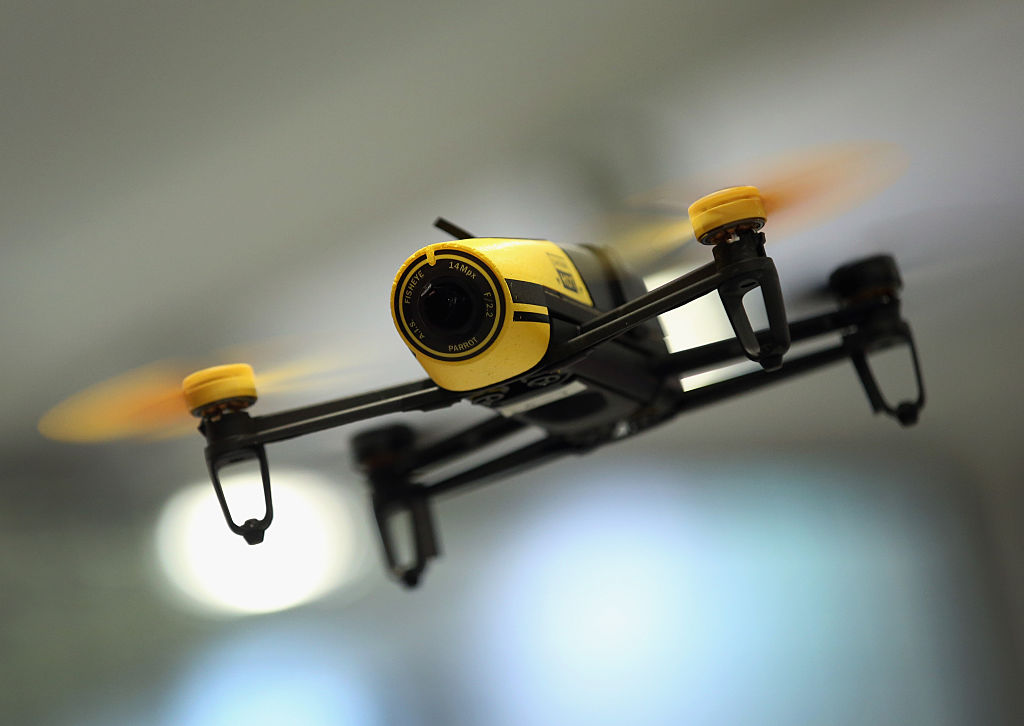Facing Battlefield Losses, Lake Chad Basin Extremists Turn to Technology
ADF STAFF
Terrorist groups in the Lake Chad Basin are embracing a mix of off-the-shelf technology, from satellite modems and social media accounts to laptop computers and drones, to augment their recruitment and activities across the region.
The groups are adopting technology to supplement manpower and drive messaging as they feel the pinch from recent successful counterterrorism operations, such as the one conducted in mid-February by Nigerian security forces that killed 133 fighters from Islamic State West Africa Province (ISWAP).
Operations against ISWAP and other Boko Haram factions have inflicted heavy losses and limited terror groups’ safe havens. Arrests of ISWAP members outside northeast Nigeria are restricting its ability to expand.
“These setbacks may be forcing ISWAP to adapt its strategy, as it has done before,” researcher Malik Samuel recently wrote for the South Africa-based Institute for Security Studies.
Hemmed in and facing a personnel shortage, ISWAP appears to be trying to convert commercially available drones into flying improvised explosive devices (IEDs), a technological step that could threaten military and civilian targets.
The ability of the terror group to weaponize drones is limited by the weight these drones can carry, the distance they can fly and the time they can stay aloft, Samuel wrote. For now, drones remain primarily a tool for reconnaissance, surveillance and intelligence-gathering.
In the meantime, ISWAP has focused on a technology-driven public relations unit that works directly with the Islamic State group to promote ISWAP on social media channels such as Telegram and WhatsApp.
The unit recruits members and trains them to use cameras, smartphones and satellite technology — particularly the brand of high-speed modems known as Thuraya. Nigeria banned the use of Thuraya satellite phones in the Northeast in 2013. In 2021, the government budgeted $7 million for its Thuraya Interception System to track calls, text messages and data sent using Thuraya technology.
Until recently, the technology was easily acquired in Lagos. ISWAP now get its Thuraya modems secretly in Chad, where they are also banned.
According to ISS interviews with former members of the ISWAP public relations team, the group spends as much as $6,000 a month on satellite data costs. ISWAP outfits its vehicles with the satellite modems, enabling its public relations team to report on activities from the field.
Images and other data are transmitted to IS, which then edits the propaganda and uploads it to its Nashir News Agency on Telegram. The goal is simple: to portray ISWAP as a successful terrorist organization and boost its membership.
ISWAP’s adoption of easily available off-the-shelf technology poses a challenge to security agencies seeking to eliminate terrorist groups.
“There is no single way to deal with the problem of ISWAP’s use of technology. The solution lies in various measures working together,” Samuel wrote.
Among other things, Samuel suggested that the Lake Chad Basin governments should invest more effort in disrupting ISWAP’s supply lines and in rooting out collaborators in military and civilian populations.
Finally, its vital to go after ISWAP’s financing, which could severely undercut its ability to pay for the technology it uses, he added.
“Curtailing ISWAP’s access to technology will prevent it from using tech to plan and execute attacks, spread propaganda and recruit,” Samuel wrote.


Comments are closed.